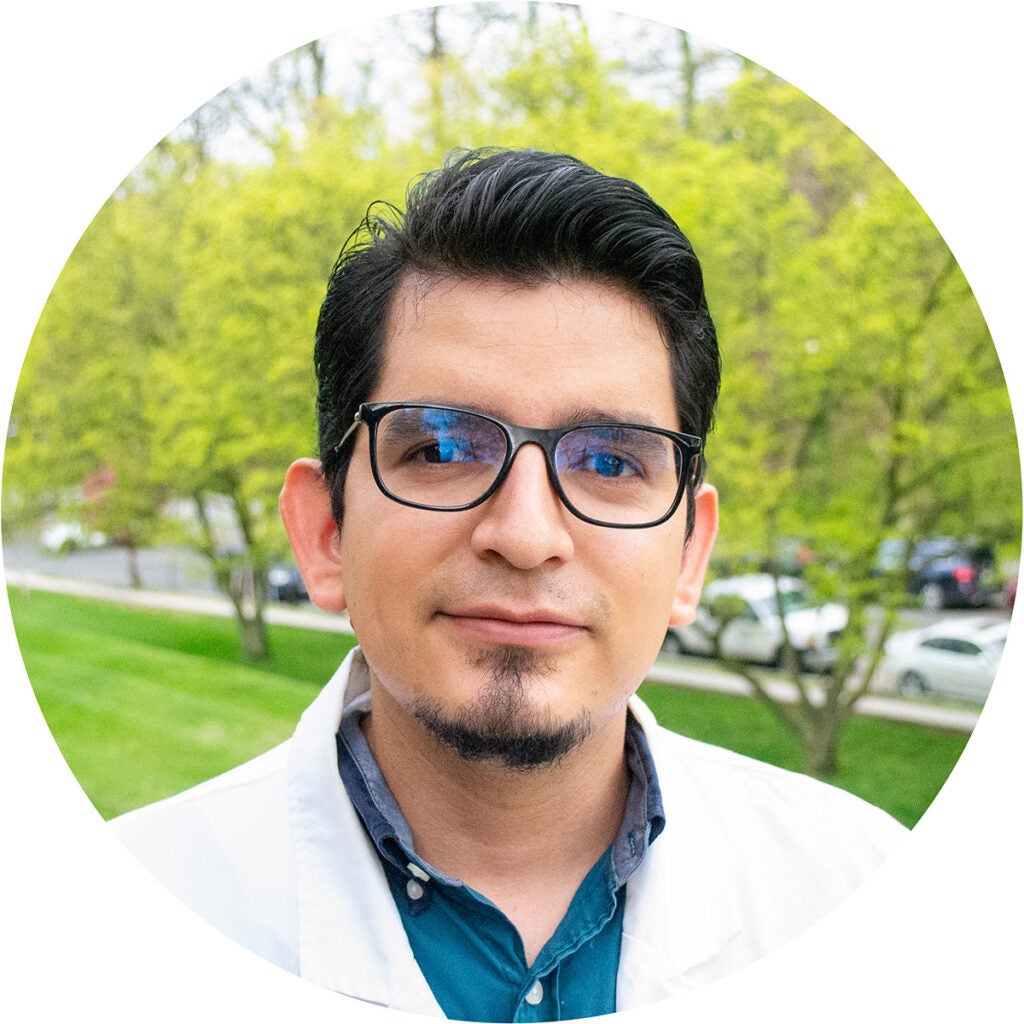Jordy Sepulveda

2023 Diversity Specialized Predoctoral to Postdoctoral Advancement in Neuroscience (D-SPAN) (F99/K00)
Through this award, I get access to a great network of graduate students and postdocs from diverse backgrounds and career stages who share their experiences about different funding sources and how to navigate academia.
About Jordy
Jordy is a doctoral student working toward the Ph.D. in Pharmacology & Physiology.
He writes: “I was born and raised in Colombia. In 2019, I received my B.A. in Biology from Hunter College—City University of New York (CUNY). While at Hunter College, I was part of the BP-ENDURE program, which is intended to train undergraduates from underrepresented communities in neuroscience research. As an immigrant and first-generation college student, I understand the value of diversity in science; for this reason, I have participated as a mentor in the Academy for Research, Clinical, and Health Equity Scholarship (ARCHES) and Diversity in Cancer Research (DICR) at Georgetown University.”
Tell us about the award you received.
I received the Diversity Specialized Predoctoral to Postdoctoral Advancement in Neuroscience (D-SPAN) award, which is intended to support graduate students from unrepresented backgrounds in neuroscience research. In this F99/K00 award, students receive support in the last 1-2 years of graduate school (F99 phase) and up to 4 years of support of career development (K00 phase).
What is your research focus?
My research focuses on how aging and APOE4 genotype, the strongest risk factors for Alzheimer’s disease, alter homeostatic microglial function prior to pathology. I demonstrate that APOE4 and aging decrease microglia surveillance and slow motility in response to cues associated with damages such as ATP and amyloid beta (Sepulveda et al., Mol Neurodegeneration, 2024).
My interest in studying microglia and Alzheimer’s disease started early in my sophomore year, and in search of research opportunities, I joined a lab that studied microglia using cell lines. This early interaction in the world of academic research sparked my interest in studying microglia. Since then, I have sought opportunities that allow me to continue studying microglia not only in the context of neurodegeneration but also in the context of brain homeostasis.
Why did you choose your program at Georgetown BGE for your doctoral studies?
I chose the Pharmacology & Physiology graduate program because the curriculum is tailored to understanding cell biology and uses pharmacology as a tool to study human physiology. Despite the challenging classes, the biochemistry and pharmacology classes gave me a solid basis for understanding the literature and applying methods for my own research.
What does this award mean to you?
This award is very important for my professional development. Through this award, I get access to a great network of graduate students and postdocs from diverse backgrounds and career stages who share their experiences about different funding sources and how to navigate academia.
What faculty member at Georgetown has been central to your growth as a student and researcher?
My mentors, Drs. G. William Rebeck and Stefano Vicini, with their own set of expertise, have played a pivotal role in my growth as a scientist. Dr. Vicini has been a great mentor, working shoulder-to-shoulder troubleshooting techniques with me; on the other hand, Dr. Rebeck has helped me interpret and contextualize the meaning of my results. My mentors have also helped to improve my grant writing skills, which has resulted in me being funded by the NIA Diversity Supplement and the Pharmacological Sciences Training Program (PSTP) T32.
What do you want to do after earning your Ph.D.?
My long-term goal is to pursue a career in academia, studying how microglia contribute to normal brain function and understanding the alterations that occur during pathology. I enjoy mentoring, and I hope to one day, as a principal investigator, provide a welcoming environment for the next generation of scientists from diverse backgrounds to be successful within and beyond academia.
